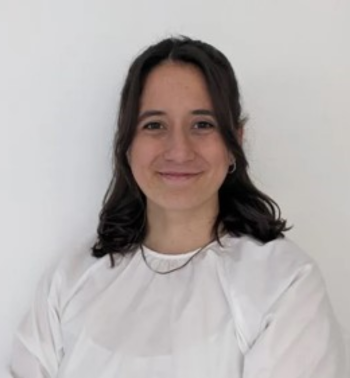1 April 2025
What is your role?
I’m the Patient and Public Involvement and Engagement Officer for the Digital Health Hub and within the School of Biomedical Engineering and Imaging Sciences at King’s College London – quite a mouthful!
This means that I support researchers and teams to involve members of the public, patients and service users in the work they do. Their input as ‘experts by experience’ shapes how biomedical research and the development of new digital health technologies is carried out, so that it addresses real problems people are having and makes sure it makes as big an impact as possible in the real world.
What do you enjoy most about your role?
I love working with our public contributors that are so passionate and committed to improving health research and development for everyone. They bring so many unique perspectives and skills, on top of their invaluable expertise as patients and service users.
What inspired you to get into this work?
I started off my career as a cancer researcher, but I found that the conversations I used to have with colleagues seemed to be very far removed from the ones that people who had these diseases were having. So, I started to do some public engagement work on the side of my PhD, and fell head first in from there.
Nowadays, I like playing the role of bringing researchers together with those that their work is affecting and facilitating useful conversations for both sides. Historically, health research has only catered to a very limited group of people, and involving as many people as possible in the research itself is one of ways we can start to move the needle on this.
What are the benefits of your work?
Proper public and patient involvement should be equally beneficial both for those working to develop health technologies and those that are going to be directly affected by it.
In short, collaborating with patients and service users means the work that researchers do is more impactful, and of better quality – for example, public contributors can advise on clinical trial recruitment, retention of participants and accessibility of trial information or procedures.
On the other side of the coin, members of the public can learn about and directly shape the research that’s affecting them and get their voices heard. There’s also lots of opportunities for both researchers and public contributors to learn new skills and develop personally!
What would be your one career top tip?
The job you’ll be doing in 20 years time maybe doesn’t exist yet! Try to focus on what you want your overall goal to be (e.g. mine is making sure that the outputs of health research match and reach their potential of addressing the needs of patients) and see what opportunities there might be that can help you reach that goal – there will probably be lots of different paths you could take to get there!
Find out more about the KHP Digital Health Hub.





